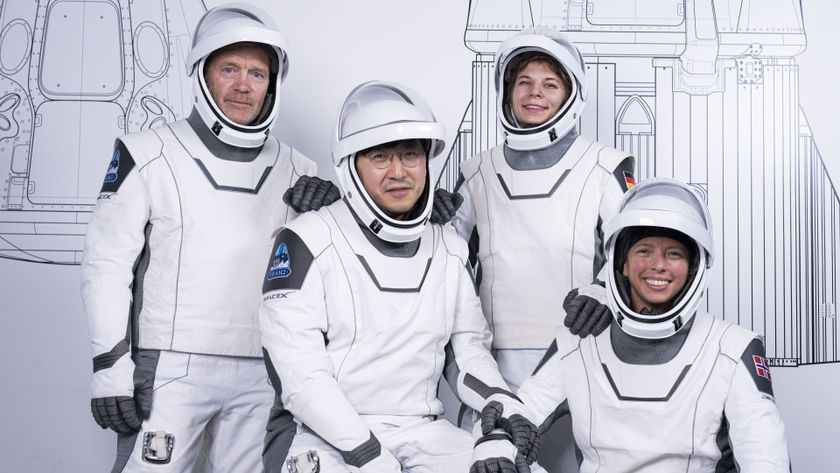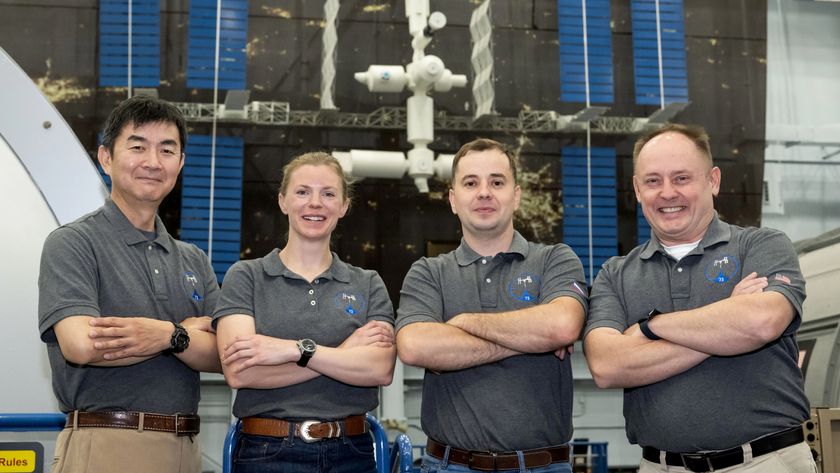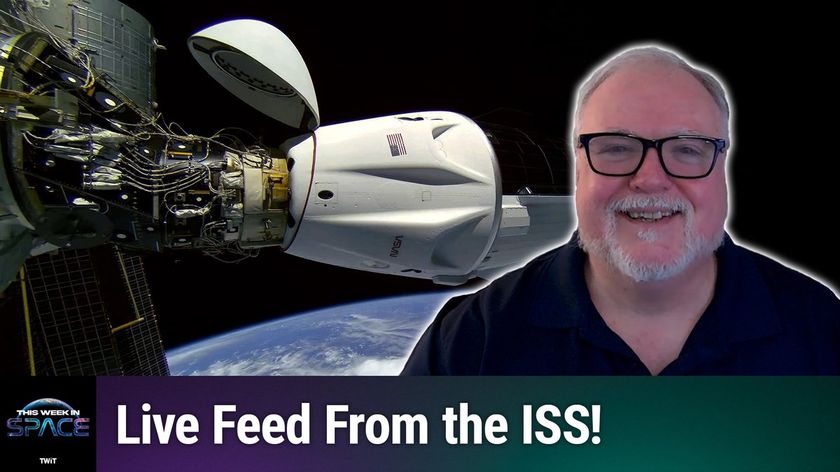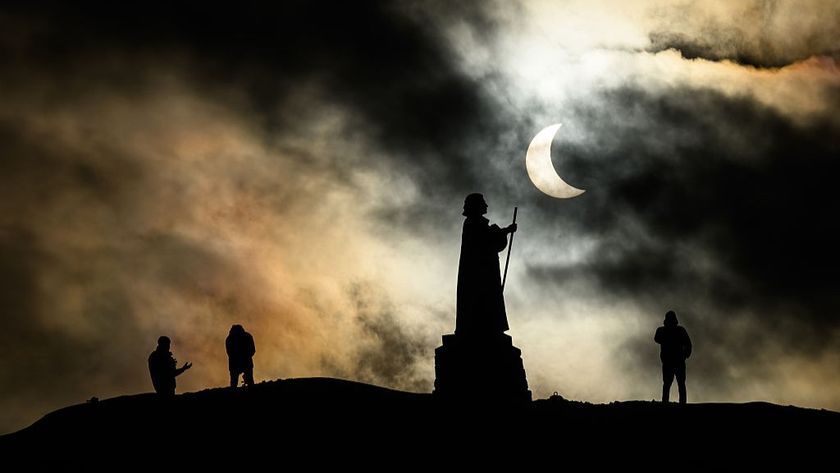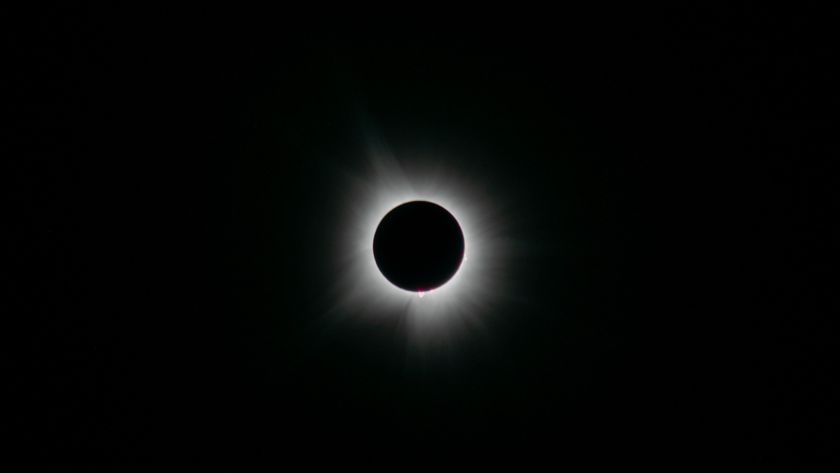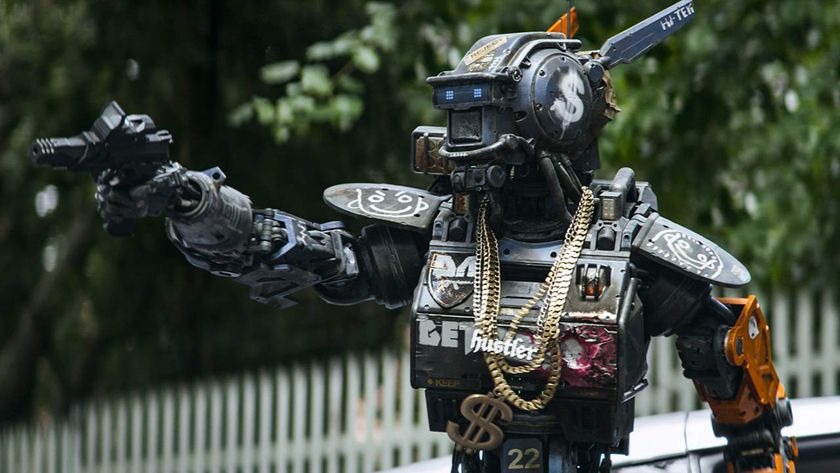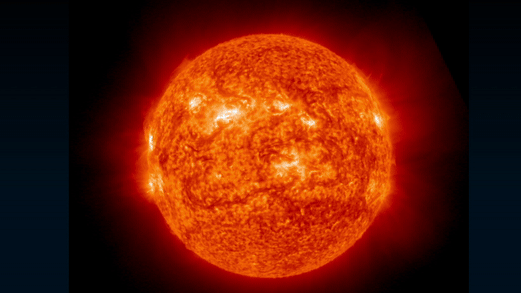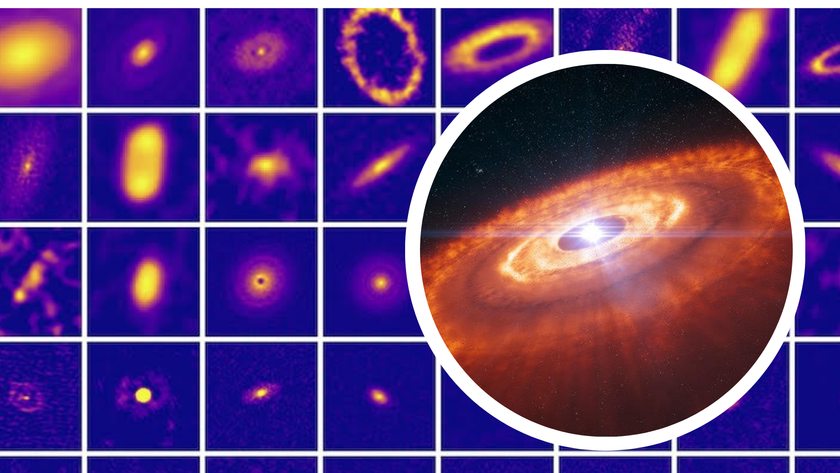Skylab Astronaut William Pogue Dies at 84
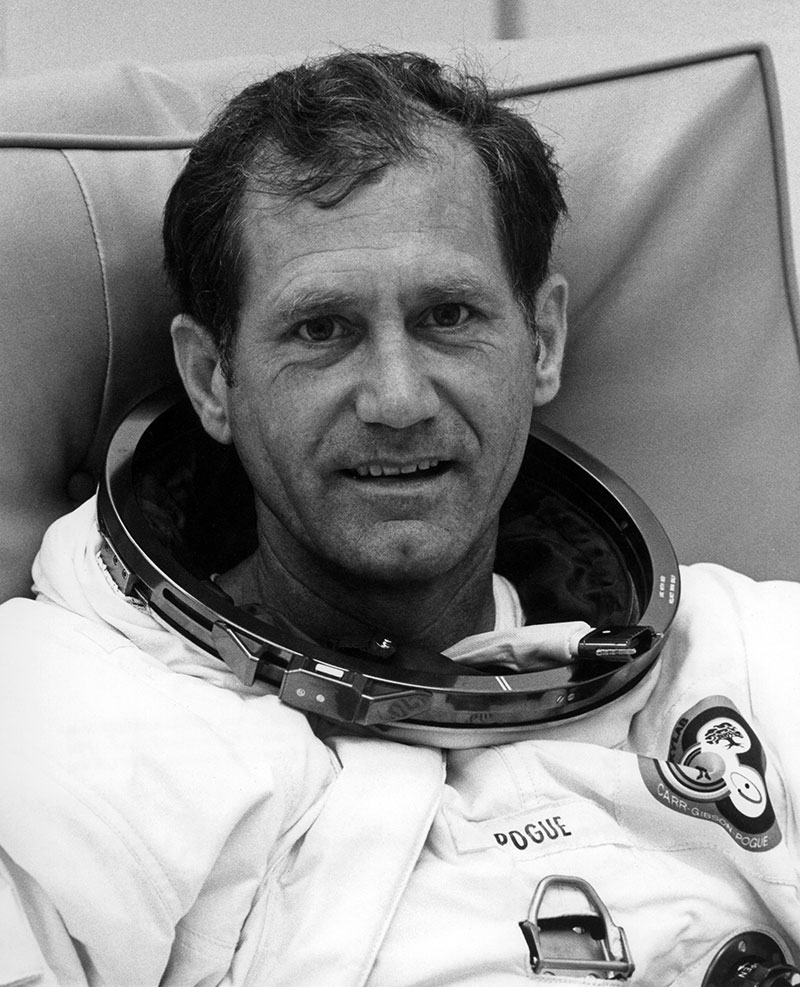
William "Bill" Pogue, a United States Air Force Thunderbirds pilot and NASA astronaut who served on the nation's first space station, died Monday (March 3). He was 84.
Pogue's death was confirmed by the Association of Space Explorers and Astronaut Scholarship Foundation, to which he belonged.
Selected by NASA in 1966 with the agency's fifth group of astronauts, Pogue made his first and only spaceflight as a member of the final crew to man the Skylab space station. Serving 84 days as the command module pilot of Skylab 3 (SL-4) from November 1973 to February 1974, Pogue and his two crewmates set numerous records for the distance they traveled and duration they spent in orbit. At the time, it was the longest human spaceflight in history. [Skylab, NASA's 1st Space Station (Photos)]
"I was scheduled to go to the moon on Apollo 19 but [the] missions 18, 19 and 20 were canceled," Pogue wrote his 2011 autobiography, "But for the Grace of God." "Instead, I was very fortunate to fly on the final visit to Skylab and spent 84 days in space studying the Sun, the Earth below, and ourselves."
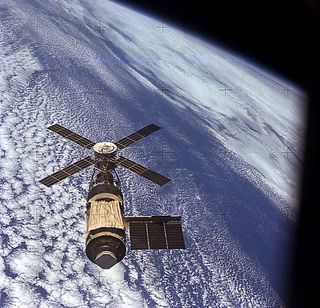
"Every third working day," he continued, "one of us served as a test subject for a range of physiological and medical experiments or studies. The work was sometime tiresome and tedious, but the view was spectacular."
While living on Skylab, Pogue performed two spacewalks, including a Thanksgiving day outing and an excursion on Christmas 1973 that set a record at 7 hours and 3 minutes long. In total, he logged more than 13 hours spacewalking outside the orbiting outpost — a converted third stage of a Saturn V rocket — while mounting experiments, retrieving film cassettes and taking photographs.
Inside the space station, Pogue and his crewmates, Jerry Carr and Ed Gibson, staged an on-orbit strike, of sorts, six weeks into their stay. The astronauts took an unscheduled day off, in reaction to an overly-ambitious work plan set by NASA's Mission Control in Houston.
Get the Space.com Newsletter
Breaking space news, the latest updates on rocket launches, skywatching events and more!
"We didn't find out until about halfway through [our stay] that we had been overscheduled. We were having trouble," Pogue recalled in a 2000 NASA oral history. "We were just hustling the whole day."
The time off, and the compromise they reached with flight controllers, resulted in a smoother workflow. [Skylab: How NASA's First Space Station Worked (Infographic)]
"I recall the last six weeks of the flight were very pleasant to me," Pogue recounted. "We all had a really much better feeling about the whole flight toward the end."
Splashing down Feb. 8, 1974, Pogue had circled the Earth 1,214 times and traveled 34.5 million miles in the course of 84 days, 1 hour, 15 minutes and 30 seconds.
Between the sky and the moon
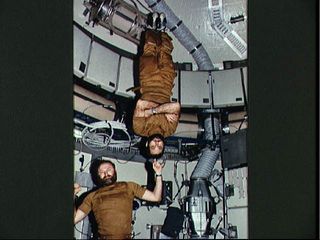
Born Jan. 23, 1930, in Okemah, Oklahoma, William Reid Pogue earned a Bachelor of Science degree in education from Oklahoma Baptist University in 1951 and a Master of Science in mathematics from Oklahoma State University in 1960.
He enlisted in the U.S. Air Force in 1951 and received his commission a year later. In 1954, Pogue completed a two-year combat tour in fighter bombers while serving with the Fifth Air Force during the Korean War. He then served two years as a member of the U.S. Air Force's precision flying team, the Thunderbirds.
"I flew as solo pilot in the F-84F and F-100C, and, for over a year also in the F-100C, I was slot pilot in the diamond formation," Pogue wrote in his 1985 children's book, "How Do You Go to the Bathroom in Space? 84 Days in Space: American Record."
He later was an assistant professor at the U.S. Air Force Academy, and in 1965 completed a two-year tour as a test pilot with the British Ministry of Aviation under a Royal Air Force exchange program. Pogue was serving as the chief of advanced projects at the Air Force Test Pilot School in Edwards, California, when NASA selected him as one of 19 new astronauts in April 1966.
Prior to his Skylab stay, Pogue also served on the support crews for the first manned flight for the Apollo command module, Apollo 7 in 1968, as well as for the first and third successful lunar landing missions, Apollo 11 in 1969 and Apollo 14 in 1971.
Though never officially announced, Pogue had been slated to fly to the moon as the command module pilot (CMP) on the Apollo 19 mission.
"I was going to be on 19 with Fred Haise and Jerry Carr," Pogue said in his NASA interview. "They did not want to announce us, and for good reason, because [our chances of flying] looked pretty bad in Washington, as far as the budget was concerned."
Pogue learned of his moon mission being cancelled in the newspaper.
"I walked out the door of the motel, and Fred [Haise] was holding this newspaper, and it said, 'Apollos 18, 19, and 20 Canceled.' So that's how we found out about it. Then eventually [chief astronaut Deke Slayton] said, 'Hey, you can't fly on Apollo. Do you want to fly on Skylab?' and of course we all said yes."
After returning to Earth, Pogue took part in early tests for the space shuttle, helping to evaluate launch emergencies and develop approach and landing techniques.
After space
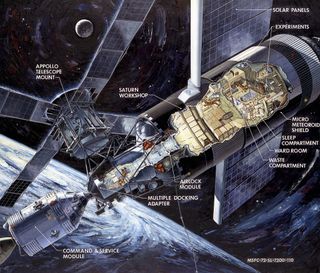
Pogue retired from the astronaut corps and NASA in 1975 to pursue being an independent contractor for aerospace and energy firms. He retired from the Air Force that same year, having logged 7,200 hours in flight, including 4,200 hours flying jet aircraft.
In addition to consulting for the Department of Energy and the Public Service Company of Oklahoma, Pogue served as an adjunct professor at the University of Arkansas and conducted technical work for Martin Marietta Corp. (now Lockheed Martin) in support of the space systems division of Air Force Systems Command.
From 1984 to 1998, Pogue furnished technical support to Boeing, helping to develop Space Station Freedom, which in 1992 evolved into today's International Space Station. In this role, he evaluated mock-ups, familiarized workers with the effects of microgravity on crews and equipment, and served as a liaison with NASA Johnson Space Center for spacewalks to assemble the space station.
An accomplished public speaker, Pogue wrote five books. In addition to "But for the Grace of God" and "How Do You Go to the Bathroom in Space," he also penned "Astronaut Primer" in 1985 and "Space Trivia" in 2003. Together with science fiction author Ben Bova, Pogue wrote "The Trikon Deception," his only novel, in 1992.
Pogue was awarded NASA and Air Force service medals, among other honors. He was inducted into the Oklahoma Aviation and Space Hall of Fame in 1980 and enshrined in the U.S. Astronaut Hall of Fame in 1997.
Bill Pogue is survived by his third wife Tina, three children from his first marriage to the late Helen Juanita Dittmar, and four stepchildren from his second marriage to the late Jean Ann Baird.
Follow collectSPACE.com on Facebook and on Twitter at @collectSPACE. Copyright 2014 collectSPACE.com. All rights reserved.
Join our Space Forums to keep talking space on the latest missions, night sky and more! And if you have a news tip, correction or comment, let us know at: community@space.com.

Robert Pearlman is a space historian, journalist and the founder and editor of collectSPACE.com, a daily news publication and community devoted to space history with a particular focus on how and where space exploration intersects with pop culture. Pearlman is also a contributing writer for Space.com and co-author of "Space Stations: The Art, Science, and Reality of Working in Space” published by Smithsonian Books in 2018.In 2009, he was inducted into the U.S. Space Camp Hall of Fame in Huntsville, Alabama. In 2021, he was honored by the American Astronautical Society with the Ordway Award for Sustained Excellence in Spaceflight History. In 2023, the National Space Club Florida Committee recognized Pearlman with the Kolcum News and Communications Award for excellence in telling the space story along the Space Coast and throughout the world.

